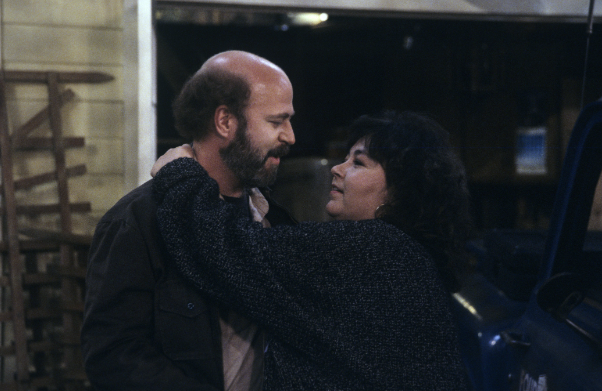Roseanne Barr’s daughter was a troubled teen who was sent to reform schools and had a strained relationship with her mother.
Jennifer Pentland, Roseanne Barr’s daughter, endured a troubled childhood marked by institutionalization due to her defiant behavior. She spent years in psychiatric facilities, reform schools, and even a wilderness boot camp, influenced partly by the pressures of her mother’s rising fame from the TV show “Roseanne.”
In her memoir, “This Will Be Funny Later,” Jennifer revealed her struggles with bad grades, defiance, and depression, which led to her placement in these institutions. Despite being in the spotlight due to her mother’s celebrity, Jennifer and her famous mother initially had a strained relationship.

The portrayal of their family dynamics on the TV show “Roseanne” further complicated their real-life relationship. Meanwhile, Barr’s personal life faced challenges, including a high-profile divorce and an affair with a writer from the show, which strained her relationship with her children.
Despite the difficulties, Jennifer eventually reconciled with her mother and became a mother herself, raising five sons with her husband. She now advocates against the institutionalization of troubled teens, emphasizing the importance of communication and understanding within families facing similar challenges.
Jennifer Pentland, after enduring emotional and physical abuse during her time in various facilities, is now an advocate against such practices. She emphasizes the deprivation of free will as the worst form of abuse she experienced. Jennifer is determined to put an end to these institutions, focusing on the impact they have on individuals’ lives.
Despite their past struggles, Jennifer and her family have reconciled and worked through their challenges together. She shares anecdotes of her mother joking about their past, indicating a healed relationship between them. Jennifer now lives a quiet life with her family in the wilderness, though she misses her previous home in Hawaii.

Reflecting on her journey, Jennifer questions the decisions made by experts and professionals who advised her parents to send her to these institutions. She believes they prioritized profit over the well-being of troubled teens, leading to further disconnect between parents and children.
Jennifer recounts her experiences in these institutions, including being taken away without warning and subjected to harsh conditions. She highlights the manipulation tactics used on both parents and children, emphasizing the need for awareness and change in the system.
Despite the challenges she faced, Jennifer maintains a positive outlook and holds no grudges against her mother. She acknowledges the complexities of their situation and the impact of her mother’s fame on their family dynamics. Despite the difficulties, Jennifer finds it hard to dwell on what could have been different, opting instead to focus on moving forward.




